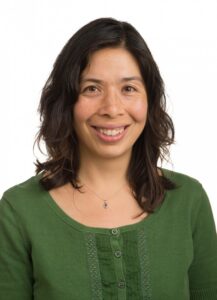
In its 50 years of existence, the Colorado State University Health Network’s Doctoral Internship in Health Service Psychology has become the standard in providing training in individual and group therapy, crisis intervention, supervision skills, assessment, outreach and prevention and diversity issues.
The program, which celebrated its golden anniversary last month, has been accredited by the American Psychological Association since 1973 and was one of the first university counseling center internships in the country to earn this recognition. APA accreditation is considered the gold standard in the profession of psychology.
Aki Hosoi, Ph.D., training director for counseling services, said the APA accreditation allows CSU Health Network to attract some of the top doctoral students in the country. CSU Health Network annually accepts four doctoral psychology interns selected through the Association of Psychology Postdoctoral and Internship Centers national match procedure. This is a highly competitive process, similar to the process through, which medical students match to a residency program.
Interns come to CSU Health Network from all over the U.S. and Canada and remain on site from Aug. 1 to July 31 of the following year.
“Because of our reputation and values, I believe that we attract some of the most self-reflective and clinically skilled doctoral students in the nation, who also happen to care a lot about making the world a better place,” Hosoi said.
Evolution of training program

When the internship was created in 1973, CSU had an enrollment of 16,860. As CSU has grown, to a current enrollment of 33,648, CSU Health Network counseling services has expanded and evolved. To flexibly adjust the training that is offered, the team meets monthly to assess the changes in organizational needs, students served, and students trained.
Over the years, the number of training clinicians has grown to about 25, belonging to seven different training cohorts. Trainees range from beginning-level therapists to experienced clinicians who have completed a graduate degree in a field related to clinical or counseling psychology. Hosoi estimates that CSU Health Network has been able to train close to 400 doctoral psychology interns since the start of the program.
“It allows us to have an important impact on the field of psychology as a whole, as people who graduate from our internship program often go on to do important and meaningful clinical work, research, and advocacy locally, nationally and internationally,” Hosoi said.
Adam Sargent, Ph.D., director of general counseling services at CSU Health Network, appreciates the new ideas and fresh perspectives that arrive yearly with each new cohort.
“Our clinicians in training are connected with research programs from their home institutions who are publishing and producing some of the latest and greatest research on mental health and we get to be the happy recipients who absorb their wisdom and experience when they join our team,” Sargent said.
Evolution of CSU Health Network’s Counseling Trainee Program
Impact of the training program
The 50-year anniversary served as a special milestone for CSU Health Network. It allowed for reflection on how the program has impacted the lives of all the trainees, the bonds that have been created, and the ways CSU students have benefited from the services provided by the trainees.
“I’d like to think we’ve honed a successful model that has a strong reputation and decades of wisdom behind it,” Sargent said.
Laurel Halsey, executive director of CSU Health Network, acknowledges the strides that have been made in mental health care since the creation of the training program.
“I think of (the) events that have helped evolve the definition of meaningful mental health care, and it is awe-inspiring to reflect that this training program maintained high quality and growth over this arc of time,” Halsey said.
Sargent is also acutely aware of the impact of the training program, as he was a member of the 2010-11 cohort. “Having a vibrant training program … means so much more to me than just passing on education,” Sargent said. “This training program is where I myself was shaped into the person and professional I am today. During my years of training and supervision at CSU Health Network I felt seen and accepted in a way that I hadn’t experienced before and allowed me to be a better therapist, a better supervisor, and an all-around better human to both myself and others. I genuinely can’t imagine the person I’d be today if it weren’t for this training.”
Andrew Brimhall began his role as CSU Health Network’s assistant director of training and group services this past fall. While Brimhall previously served as a counselor at CSU Health Network, in his new role he is looking forward to continuing to train clinicians and create new and exciting opportunities to meet the needs of today’s generation of college students. According to Brimhall, “not only does good training benefit the students we serve, but we have an opportunity to enrich the professional lives of our training clinicians who get a robust and diverse set of skills and experiences that will carry into their professional work throughout their lives.”
Agreeing with Brimhall, Hosoi added: “I have gotten to witness the ways (trainees) have impacted the lives of clients, as well as ways they have worked to change the profession. It’s humbling to imagine that going back for 50 years and to think of the impact this training program has had, when you think of the ripples of impact from each of those psychologists after they left this place.”
Learn more
For more information on CSU Health Network’s graduate training program, please visit health.colostate.edu/graduate-training.